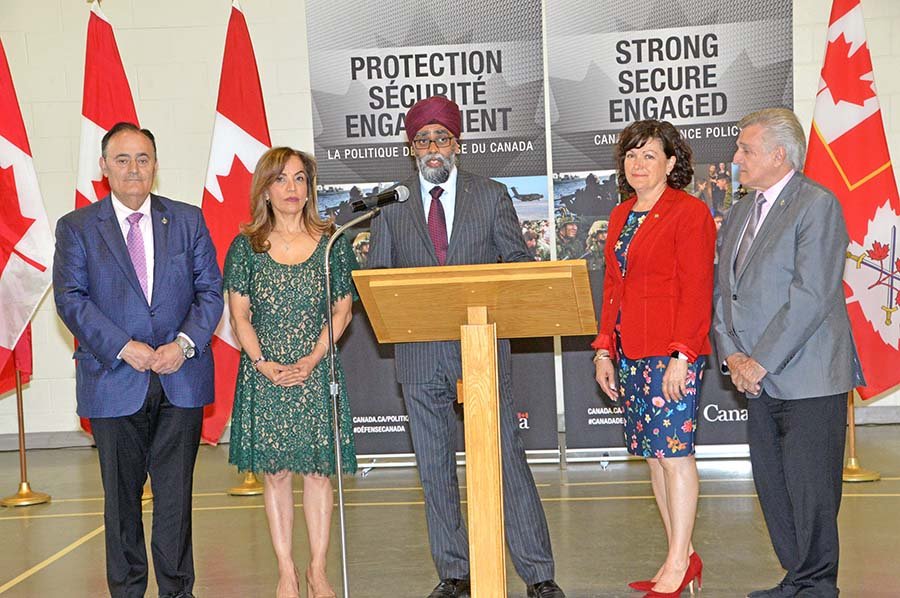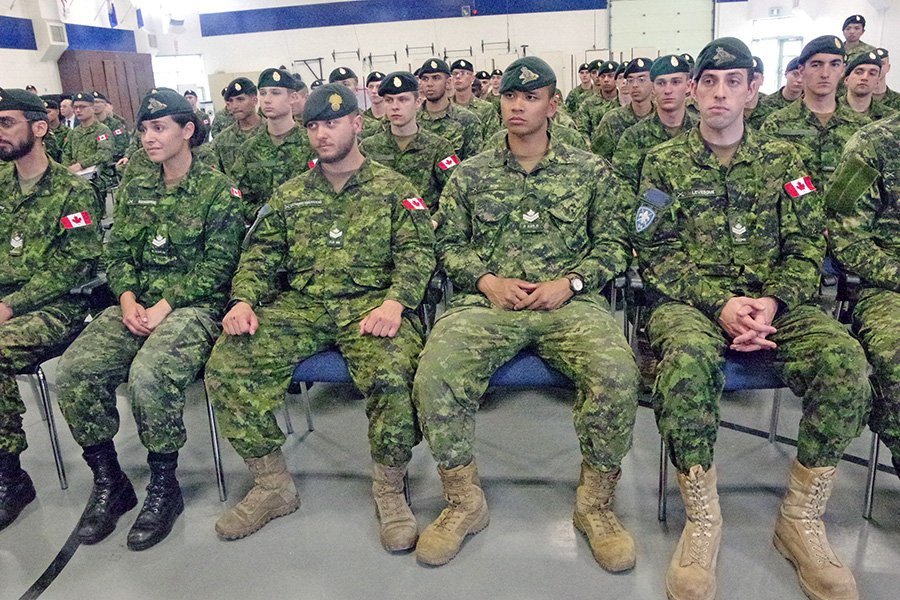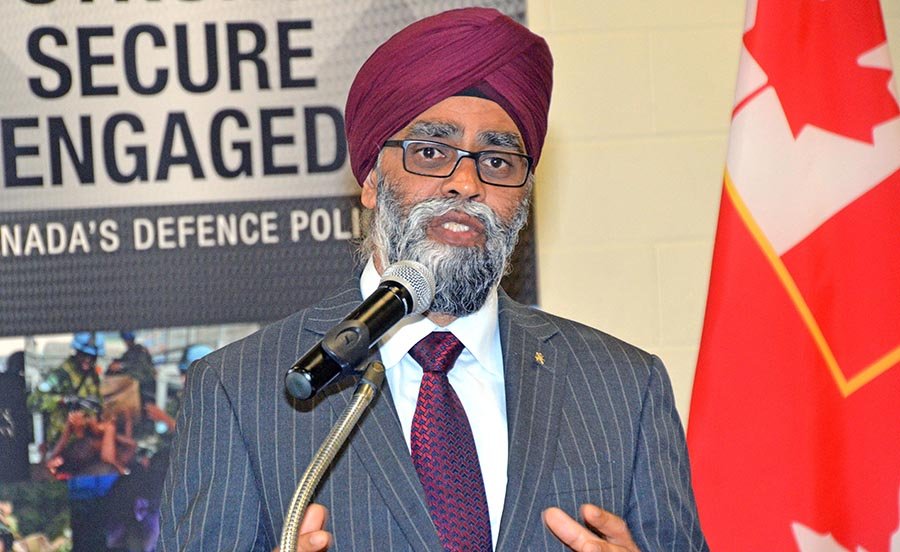
Martin C. Barry
Canadian Defence Minister Harjit Sajjan announced to a drill hall full of Canadian Armed Forces reservists on June 14 at the Royal 22nd Regiment 4th Battalion’s Laval headquarters that Ottawa is raising the base pay of reserve soldiers to the same level as wages earned by regular forces personnel beginning in August.
The venue for the announcement was appropriate, since the Royal 22nd Regiment’s 4th Battalion is a Primary Reserve infantry unit of the Canadian Forces. The 4th Battalion is responsible for Laval and the 20-odd municipalities on the North Shore of Montreal.
Fair compensation, says minister
The Defence Minister was accompanied by several Laval and North Shore-area MPs, including Laval-Les Îles Liberal MP Fayçal El-Khoury, Vimy Liberal MP Eva Nassif, Marc-Aurèle-Fortin Liberal MP Yves Robillard, and Rivière-des-Mille-Îles Liberal MP Linda Lapointe.
“This important initiative laid out in Canada’s defence policy – Strong, Secure, Engaged – will ensure that our Reserve Force members are fairly compensated for their service,” said Sajjan. “It is a clear demonstration of how our government and all Canadians value the dedication and sacrifices of all members of our Canadian Armed Forces.”

Helped during flooding
Nassif noted the crucial role reservists have been playing in Laval and on the North Shore in recent years. This past spring, reservists helped civilians during seasonal flooding. “As a local member of the parliament for the riding of Vimy, it’s an honour to have this important reserve unit in our community,” said Nassif. “We are immensely grateful for the work our Canadian Armed Forces did in responding to our community’s emergency needs following this natural disaster.”
According to a press release issued by the Department of National Defence, the restructuring of pay is part of an overall vision outlined in the Liberal government’s defence policy, which also includes increasing the Reserve Force by 1,500 members and further integrating reservists into operations.
Were paid 15 per cent less
“The Reserve Force is crucial to the success of our Canadian Armed Forces,” says the DND. “Reservists come from all walks of life, and include students, civil servants, labourers, business people, academics, and former members of the Regular Force.”
The DND says reservists will receive more money in the new system in order to more fairly compensate them for their service. Previously, Reserve Force remuneration amounted to 85 per cent of the total regular force pay.
Regular force pay is composed of two parts: base pay and Military Factor. The Military Factor is a percentage added to the base salaries of Canadian Armed Forces members that compensates them for additional requirements that don’t affect most public servants.

Near 8 per cent pay hike
The Military Factor is calculated using three military and two additional elements. The military considerations are: personal limitation and liability, separation, and posting turbulence. The two additional elements are overtime and acting for supervisors without an increase in pay.
The department says the change of calculation from 85 percent to a base pay plus Military Factor approach will result in an increase of 7.8 percent. For example, the pay rate for a first year corporal will increase from $140 to $153 a day.
Raise effective in August
Reservists on Class A and Class B periods of service are paid on a daily rate, based on their rank and time in that rank. Reservists on Class C periods of service, such as those who deploy on operations, receive the same pay as regular force members, which is calculated at a monthly rate. Reservists will begin receiving the new rate by the end-month pay in August 2019. That rate will be retroactive to April 1, 2019.
The Military Factor elements that apply to reservists under the new system are: personal limitation and liability, overtime, and acting for supervisors. As well, according to the DND, reservists cannot be posted to a different geographic location or be sent away from their families on an operation or exercise without their personal consent. This is different from Regular Force members, who are expected to move or deploy when directed, often frequently and on short notice.



